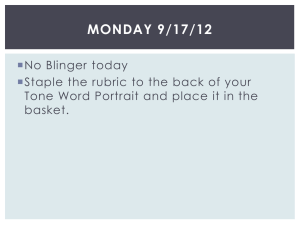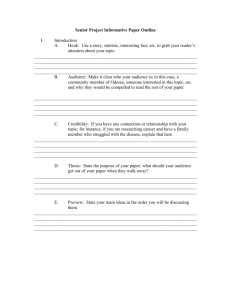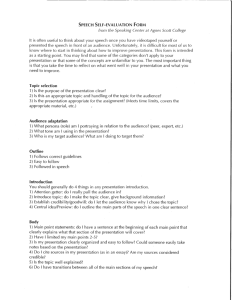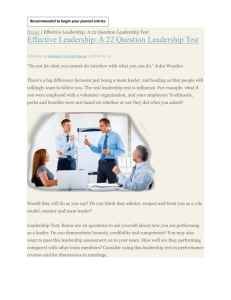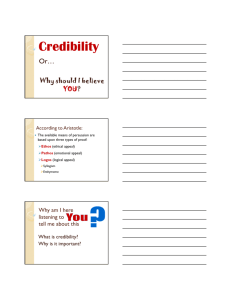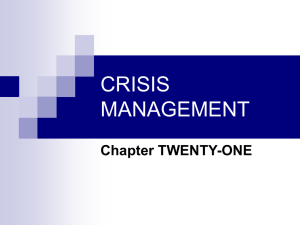Researching Your Research (PowerPoint)
advertisement
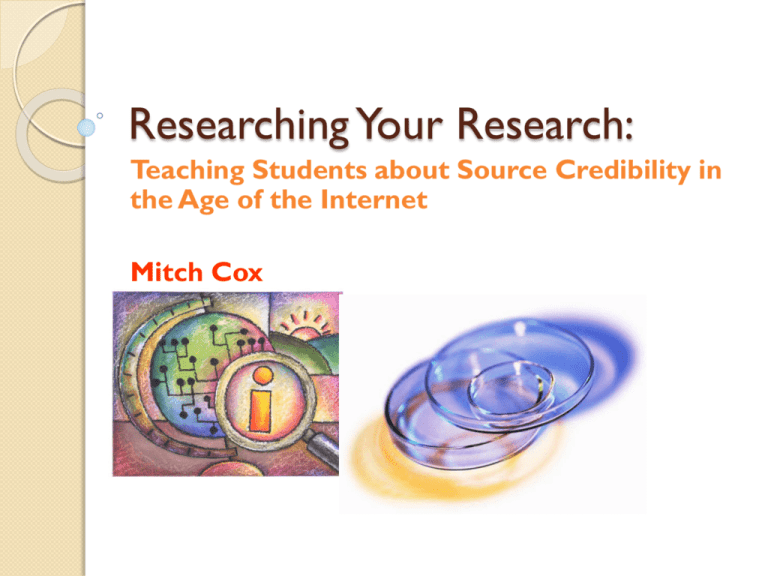
Researching Your Research: Teaching Students about Source Credibility in the Age of the Internet Mitch Cox HOW TO FIND THIS PPT & OTHER FILES. •Open a browser. •Go to Google. •Type Mitch Cox, Teacher Web and click on Mitch Cox’s Website. BACK TO THE FUTURE: ARISTOTLE’S ETHOS: the credibility of the writer or speaker One of the ways a student writer establishes her or his own ethos is by citing reliable sources. How do we know if sources are reliable? CONSIDERATIONS FOR CREDIBILITY Primary and Secondary Sources Primary Sources ◦ A first-hand account of someone out of work because of the recent recession: personal, telephone, email Interview or Blog ◦ A government economic report with hard data and (statistics) on unemployment Secondary Sources ◦ A study of economic data by economists (experts in the field) ◦ A news report on this issue by a journalist who has experience with this topic and who interviews a range of experts on this topic. MORE CONSIDERATIONS OF CREDIBILITY Time, Political Perspective, Balance How recent is the source? [Ex. of vaccination/autism] What is the political perspective of the source? If the source is not an expert in the field, does the source cite a range of experts in the field, from different political perspectives? MORE CONSIDERATIONS OF CREDIBILITY CONT’D Time, Political Perspective, Balance If you are using one source from one side of the political perspective, have you considered a source representing the other perspective? [some .org sources] Is your source a well-known and wellrespected expert in the field or a national or international publication? MORE CONSIDERATIONS OF CREDIBILITY CONT’D Types of Sources & Audiences General Audience Magazines vs. Academic Journals Peer-Reviewed Journals: reviewed by other scholars in the field to get their opinion on the quality of the scholarship, its relevance, appropriateness How do you know? MORE CONSIDERATIONS OF CREDIBILITY CONT’D Editorials Editorials/Columns can provide useful arguments Find out what you can about the columnist/editorialist? Is the columnist/editorialist an expert in the field, is she/he writing about his/her subject? If the editorialist/columnist is not a first-hand expert on this topic, is she/he someone who has studied and written about the topic? MORE CONSIDERATIONS OF CREDIBILITY CONT’D News Reporting: The “Facts” News. “Fact”-Based Reporting There is no non-biased reporting/ Does the reporter offer balance, a range of perspectives? Does the reporter have experience with the topic? What are the potential biases of the publication? .com sources: Who owns the publication? What does the publication own? [Washington Post example] RESEARCHING YOUR RESEARCH Other Considerations On what do the experts agree? Where do the experts disagree? Why? When examining studies, surveys, and statistics, consider: How many people, subjects were involved? Over how long a period? Is it a statistically valid sample? How many studies have been conducted? Are the results and conclusions of the studies consistent or contradictory over time? Are there expert speculations on the reasons for contradictions? RESEARCHING YOUR RESEARCH Ethos/credibility notations 15 [15 indicates that this is the 15th source card/bibliographic entry in your alphabetical ordered list.] McLay, Robert N. At War with PTSD: Battling Post Traumatic Stress Disorder with Virtual Reality. Baltimore: John Hopkins University Press, 2012. Print. ETHOS NOTE:Booknews.com notes that McLay is a psychiatrist and research director at the Naval Medical Center in San Diego and “explains complicated medical and psychiatric concepts and processes for general readers.” Booknews also mentions that At War “will satisfy researchers and scholars.” WM 172.5 M478a 2012[Call Number] UNC-CH Health Sciences Library Books [Source Location] RESEARCHING YOUR RESEARCH Ethos/credibility notations 2 [2 indicates that this is the 15th source card/bibliographic entry in your alphabetical ordered list.] Coleman, Penny. Posttramautic Stress Disorder, Suicide, and the Lessons of War. Boston: Press, 2006. Print. Beacon A photojournalist married in the 1970s to a Vietnam veteran who later committed suicide. Coleman has researched the history of PTSD from the Civil War to the current conflicts in Iraq and Afghanistan. A teacher of photography and photojournalism at the International Center for Photography and New Jersey City University. 616.852 COL [Call Number] Orange County Public Library [Source Location] HANDOUTS & LINKS See my Website Ethos Teaching Handout Ethos Critique Exercise Links Handout ◦ Evaluating Print Sources from UNC-CH Writing Center
